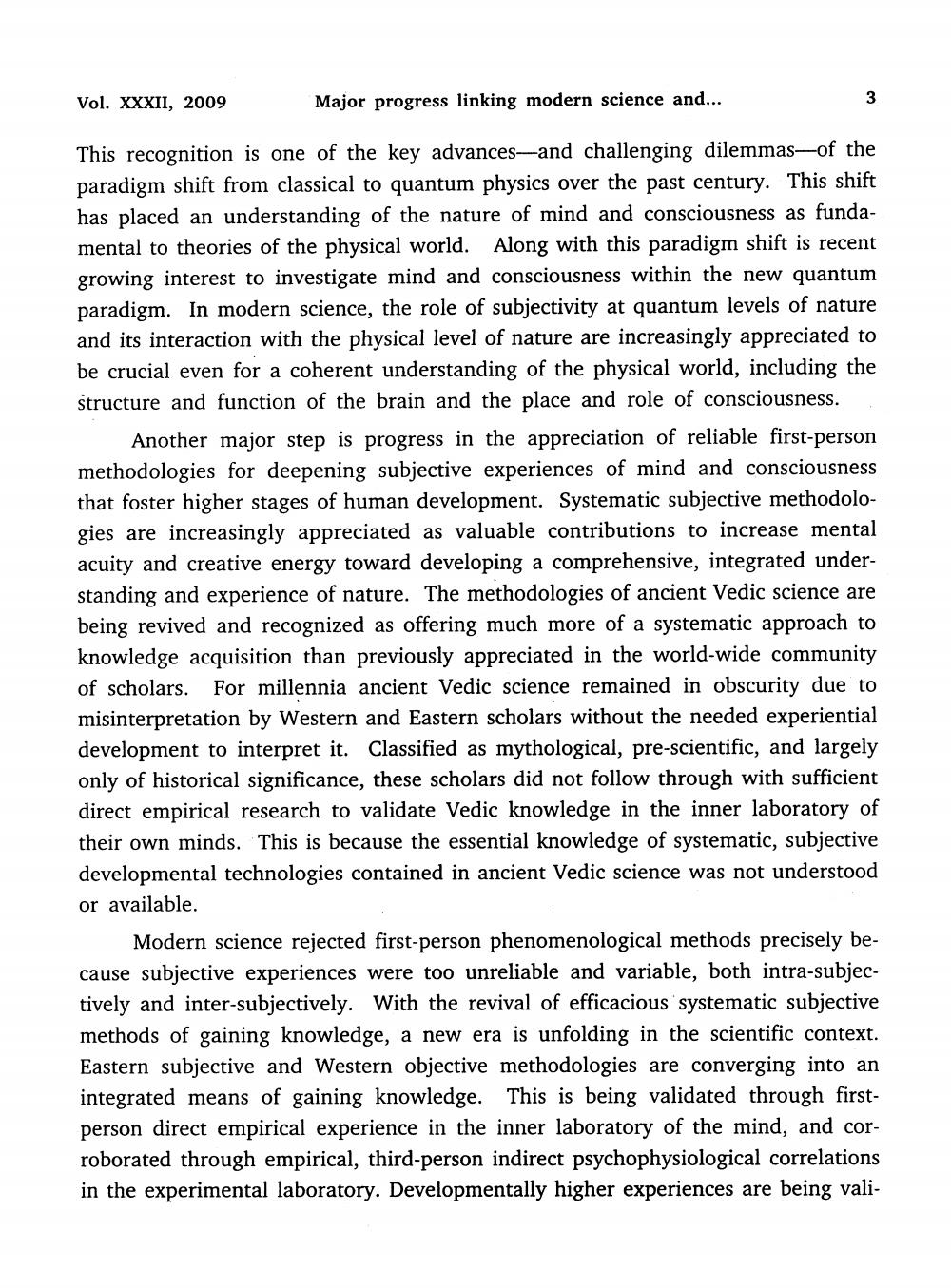________________
Vol. XXXII, 2009
Major progress linking modern science and...
This recognition is one of the key advances—and challenging dilemmas of the paradigm shift from classical to quantum physics over the past century. This shift has placed an understanding of the nature of mind and consciousness as fundamental to theories of the physical world. Along with this paradigm shift is recent growing interest to investigate mind and consciousness within the new quantum paradigm. In modern science, the role of subjectivity at quantum levels of nature and its interaction with the physical level of nature are increasingly appreciated to be crucial even for a coherent understanding of the physical world, including the structure and function of the brain and the place and role of consciousness.
Another major step is progress in the appreciation of reliable first-person methodologies for deepening subjective experiences of mind and consciousness that foster higher stages of human development. Systematic subjective methodologies are increasingly appreciated as valuable contributions to increase mental acuity and creative energy toward developing a comprehensive, integrated understanding and experience of nature. The methodologies of ancient Vedic science are being revived and recognized as offering much more of a systematic approach to knowledge acquisition than previously appreciated in the world-wide community of scholars. For millennia ancient Vedic science remained in obscurity due to misinterpretation by Western and Eastern scholars without the needed experiential development to interpret it. Classified as mythological, pre-scientific, and largely only of historical significance, these scholars did not follow through with sufficient direct empirical research to validate Vedic knowledge in the inner laboratory of their own minds. This is because the essential knowledge of systematic, subjective developmental technologies contained in ancient Vedic science was not understood or available.
Modern science rejected first-person phenomenological methods precisely because subjective experiences were too unreliable and variable, both intra-subjectively and inter-subjectively. With the revival of efficacious systematic subjective methods of gaining knowledge, a new era is unfolding in the scientific context. Eastern subjective and Western objective methodologies are converging into an integrated means of gaining knowledge. This is being validated through firstperson direct empirical experience in the inner laboratory of the mind, and corroborated through empirical, third-person indirect psychophysiological correlations in the experimental laboratory. Developmentally higher experiences are being vali




